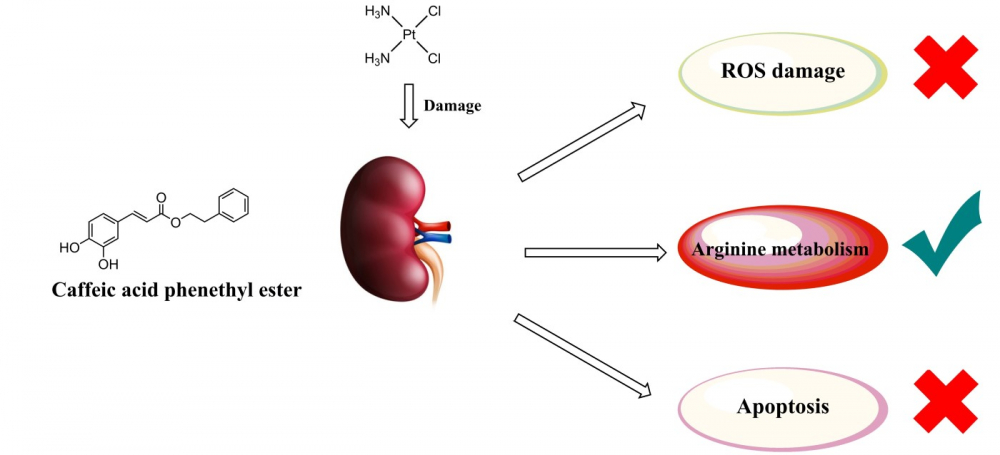JOURNAL 2146
Records of Natural Products
Year: 2022 Issue: 4 July-August
p.293 - 306
Viewed 3398 times.
-
Branka Mitic

-
Dusan Mitic

-
Milica Radic

-
Milica Stankovic

-
Mihailo Sokolovic

-
Jelena Milovanovic

-
Nebojsa Arsic

-
Dusan Sokolovic

GRAPHICAL ABSTRACT

ABSTRACT
Cisplatin utilization is known to be limited due to numerous side effects, especially to the ones related to kidney tissue injury. The application of antioxidants, as potential supportive drugs, to prevent oxidative cisplatin tissue damage appears intuitive. In this work, we explored the usage of caffeic acid phenethyl ester (CAPE) in this respect through the analysis of standard serum biochemical parameters and the ones related to oxidative tissue damage, the changes in arginine metabolism, and apoptosis occurrence that follow cisplatin application in rat kidneys. Additionally, pathohistological analysis and a specific TUNEL staining for the detection of apoptosis was studied. Cisplatin produced marked changes in serum parameters that reflect kidney tissue function, while at the same time produced extensive tissue oxidative damage, increased arginase activity, and depleted reduced glutathione. Moreover, both biochemical and micromorphological analyses indicated significant tubular cell apoptosis. The application of CAPE together with cisplatin prevented the disturbance in serum biochemical and tissue oxidative stress parameters, without affecting arginase activity. Interestingly, CAPE inhibited different enzymes involved in the glutathione metabolism and the apoptotic process. The results of the present study indicate that CAPE could be used as supportive therapy for oncological patients receiving cisplatin since it attenuates the nephrotoxicity of this chemotherapeutic.
KEYWORDS- Caffeic acid phenethyl ester
- kidney
- cisplatin
- oxidative damage
- arginase
- apoptosis